A Stunning Harrison Ford Movie Just Hit Streaming On Netflix
An amazingly beautiful, enormously expensive Harrison Ford movie just arrived onto Netflix streaming, and you need to take another look.
This article is more than 2 years old
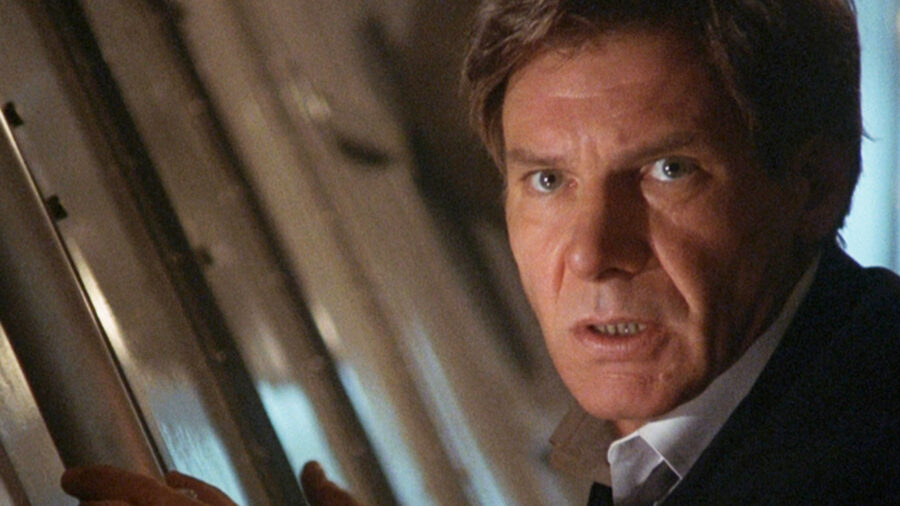
If the world of science fiction has a sacred cow, it is Blade Runner. The 1982 Ridley Scott film is perhaps the single most important film in modern science fiction, influencing virtually every other portrayal of the ever-popular dystopian future setting. Based (extremely loosely, as is usually the case) on a novel titled Do Androids Dream of Electric Sheep? by cult writer Philip K. Dick, Blade Runner starred Harrison Ford as a former police officer (or “Blade Runner,” a title lifted from a William S. Burroughs novel and completely unexplained in the film) tasked with hunting down fugitive synthetic humans (or “replicants”). The movie engaged with complex themes like the nature of reality vs artificiality, capitalism, identity, slavery, and even the notion of who gets to be a hero of their own story. When it came to choosing between a neo-noir, intensely gloomy dystopia starring a depressive Harrison Ford or E.T.: The Extraterrestial that year, audiences went overwhelmingly with the glowy alien of love. Decades of rights issues passed with only various re-cuts of Blade Runner and critical re-examinations of the movie, until 2017, when the long-awaited sequel, Blade Runner 2049 came to pass. And lucky us, as of right now, that movie is now currently streaming on Netflix.
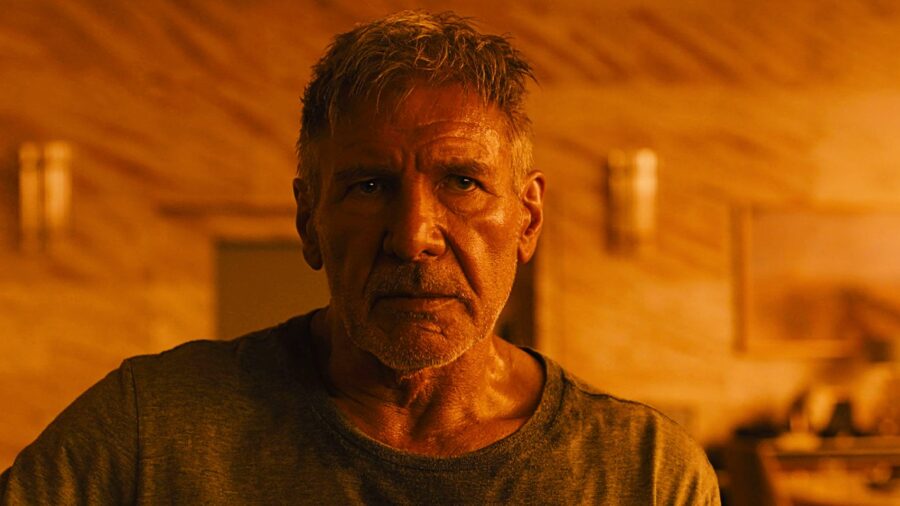
The rights issues that prevented any further Blade Runner movies being made for years are as complex as they are boring, but suffice it to say, eventually, Alcon Entertainment purchased those rights. Initially, director Ridley Scott was on board and was even announced to direct. Prior commitments to his other massively influential science fiction franchise (in the form of Alien: Covenant) got in the way, and he stepped down, though remaining as executive producer. French director Denis Villeneuve had already worked with Alcon on his film Prisoners, and was recruited. Quite understandably, Villeneuve was concerned with taking on the sequel to one of the most highly regarded science fiction films ever, but he went ahead. Initially, production denied that Harrison Ford was returning to his role as Rick Deckard; it can be assumed that Ford’s legendary reluctance to return to any role except Indiana Jones might have had something to do with that. Surprisingly, Harrison Ford was game to return for Blade Runner 2049. Ryan Gosling was brought on board as new protagonist/Blade Runner K, in a role written specifically for him, and things were a go.
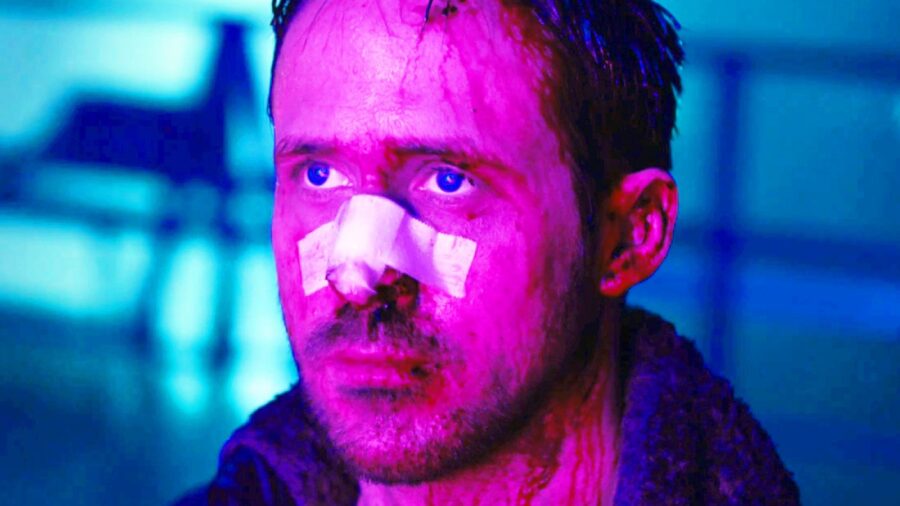
From the first moments of the film, Blade Runner 2049 is both paying deep homage to its predecessor and and playing with audience expectations. It opens with a near-replication of the famous close-up to eyeball as the first movie, and mimics the first scene of a replicant being interrogated by a calm, assured Blade Runner. As it turns out though, Ryan Gosling’s K is also a replicant, a higher-end model tasked with hunting down bio-engineered humans like himself. And whereas the Blade Runner in the first movie is swiftly gunned down by the replicant Leon (Brion James), when K is attacked by the hulking Sapper Morton (Dave Bautista in a simmeringly quiet performance), he easily overpowers the much more imposing, yet technologically inferior man. Harrison Ford does not return till much later in the film, though his presence as Rick Deckard looms large even when he is not seen.
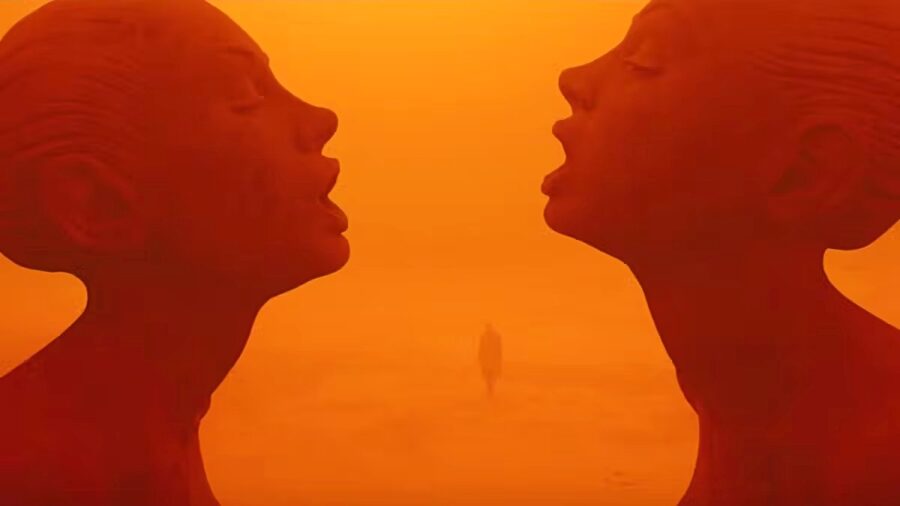
Aside from Ryan Gosling and Harrison Ford, Denis Villeneuve assembled an impressive array of talent. Robin Wright appears as K’s conflicted superior officer, while Sylvia Hoeks stars as an authoritarian replicant seemingly caught between self-loathing and fanaticism. Ana de Armas appears as K’s AI holographic live-in girlfriend, and Jared Leto acts as the distant, God-like tech genius Niander Wallace (in a role Villeneuve hoped to cast David Bowie in before his passing).
Blade Runner 2049 was an enormously complex and expensive film to make. Denis Villeneuve brought in his frequent collaborator, legendary cinematographer Roger Deakins, and the movie shows it. It is visually gorgeous, managing to mirror the rainy, broken version of Los Angeles so memorably created in the original, and adds new layers of technological beauty and devastation. The movie was so expensive, it was estimated that it would take a box office gross of approximately $400 million to make a profit. It did not manage nearly that even globally, which can probably be blamed on the 163-minute runtime, the oppressively dour nature of any Blade Runner project, and people not knowing what’s good for them.
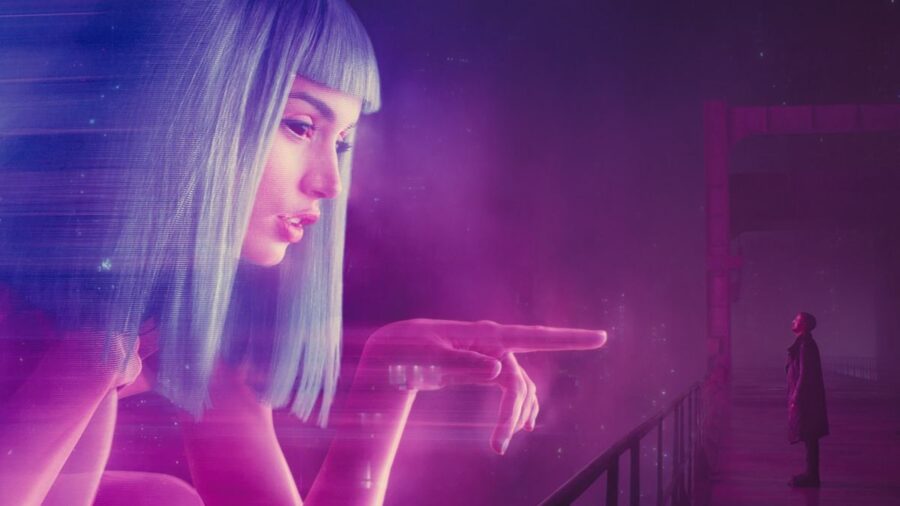
Dennis Villeneuve managed to escape the potential director-jail that an enormous box office flop like Blade Runner 2049, and got a career-saving win with Dune. Harrison Ford has gone back to the only role he has seemingly ever loved, Indiana Jones, but is rumored to be appearing in a live-action Blade Runner series. Blade Runner 2049 was a fine and accomplished successor to one of the greatest films ever made, but it will likely take a similarly long time before it is appreciated on the same level.












